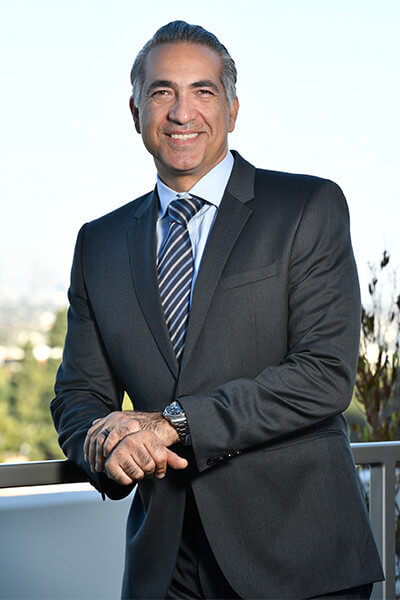The California Supreme Court recently expanded the remedies available to lemon law plaintiffs in its long-awaited decision in the matter, Kirzhner v. Mercedes-Benz USA, LLC (Cal., July 27, 2020, No. S246444) 2020 WL 4280966, at *22020 (“Kirzhner”). In Kirzhner, the Supreme Court tackled the question as to whether, in a lemon law case, an automobile manufacturer should be required to reimburse registration renewal and nonoperation fees? Specifically, should the reimbursement be recoverable as collateral charges or as incidental damages? The California Supreme Court answered, essentially, yes – such damages are recoverable when they flow from the automakers’ violation of the Song-Beverly Act (the “Act”).
The fact in Kirzhner were fairly straightforward: Plaintiff Allen Kirzhner leased a new vehicle from Mercedes in 2012. He alleged that during the warranty period, his vehicle exhibited numerous defects that ultimately led to a malfunctioning command system, navigation system, and key fob. These defects also caused the steering column adjustment mechanism and power seats to be inoperative, the coolant level warning light to illuminate, and smoke to emanate from the cigarette lighter. As is the story in most lemon law cases, Mercedes was still unable to repair the defects after a reasonable number of repair attempts.
After filing suit, Mr. Kirzhner ultimately accepted a settlement offer made by Mercedes pursuant to Code of Civil Procedure §998 about six months into litigation. Instead of specifying a monetary amount in the settlement offer, Mercedes offered Mr. Kirzhner a replacement vehicle or restitution in exchange for the vehicle. Mr. Kirzhner opted for restitution and was awarded upwards of $47,000 by the trial court. However, while this sum included the initial registration fee that Mr. Kirzhner paid upon entering into the lease, it did not include the registration renewal fees and nonoperation fees totaling $680 paid in 2013 and 2014. Mr. Kirzhner took exception to the Court’s failure to award these fees because, he claimed, they arose from Mercedes’ failure to comply with the Act. Mr. Kirzhner appealed and the Court of Appeal affirmed the trial court ruling that the only registration fee that could be considered “collateral” is one that is paid at the time the vehicle is purchased or leased. Mr. Kirzhner appealed, again!
Our Supreme Court analyzed Civil Code §1790 of the Song-Beverly Consumer Warranty Act, commonly known as the “lemon law,” allows consumers with a “lemon” to choose one of two remedies: a replacement vehicle or restitution. More specifically, §1793.2 of the Act states that “the manufacturer shall make restitution in an amount equal to the actual price paid or payable by the buyer…including any collateral charges such as sales or use tax, license fees, registration fees, and other official fees, plus any incidental damages to which the buyer is entitled under §1794…”
In Kirzhner, the Court concluded that based on the plain language of §1794, subsequent registration renewal and nonoperation fees are not recoverable collateral charges because these charges are not collateral to the price paid for the vehicle. The Court reasoned that the initial registration fee is a recoverable collateral charge, like a sales or use tax, because it is a price paid as part of the total cost of the vehicle and in exchange for the vehicle. Contrastingly, a registration renewal fee or nonoperation fee is one that is paid to the DMV during the course of the lease or ownership, and so cannot be classified as a “collateral charge.”
While the fees were deemed unrecoverable as collateral charges, the Court held that they are recoverable as incidental damages if they were incurred as a result of the automakers’ failure to promptly provide a replacement vehicle or restitution once its obligation under §1793.2 arises. Subsection (d)(2) provides that a buyer may recover restitution “plus any incidental damages to which the buyer is entitled under §1794, including, but not limited to, reasonable repair, towing, and rental car costs actually incurred by the buyer.” Further, California Uniform Commercial Code §2715 defines “incidental damages” as including expenses “reasonably incurred in inspection, receipt, transportation and care and custody of goods rightfully rejected, any commercially reasonable charges, expenses or commissions in connection with effecting cover and any other reasonable expense incident to the delay or other breach.”
Therefore, the Supreme Court remanded the case for the trial Court to make a determination as to whether or not the additional registration fees were incurred as a result of Mercedes’ failure to promptly replace/repurchase the vehicle.
While Kirzhner is seemingly over only $680, the decision has broad implications for California lemon law matters:
- Kirzhner allows lemon law plaintiffs to pursue registration renewal fees beyond year-one of ownership, if they were incurred as a result of the automakers’ failure to repurchase/replace the vehicle. In other words, if the automaker should have bought the car back, registration fees incurred after the vehicle should have been repurchased are now available.
- Other incidental damages – such as insurance premiums, maintenance charges, and other charges incurred for the care and custody of the vehicle are also, potentially, available now.
- Importantly, our Supreme Court confirmed that manufacturers possess an “affirmative duty” to voluntarily repurchase defective or unfixable vehicles, even without the consumer asking that they do so.
If you have questions regarding your lemon law claim, we invite you to learn more about CCA and call our experts today for a free consultation: (833) LEMON-FIRM.

